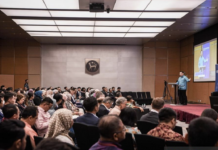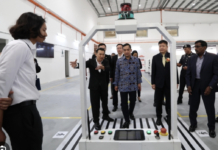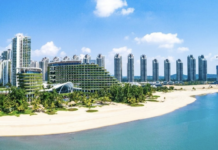PETALING JAYA: Stakeholders in Johor say the government must look for new ways to safely free up border travel with Singapore as current regulations are harmful to the state’s economy.
While Singapore and Malaysia have established the Reciprocal Green Lane (RGL) and Periodic Commuting Arrangements (PCA), they say these two travel measures have limited scope which has stifled cross-border movement vital to Johor businesses.
Soh Thian Lai, president of the Federation of Malaysian Manufacturers (FMM), told FMT the two countries need to facilitate the 250,000 travellers who used to commute daily from Johor to Singapore, which is not covered by the current travel arrangements.
He said many were caught off guard by the extended closures, which led to some being stranded in Singapore and others losing their jobs after being unable to report for work in the republic.
“Singapore needs the workforce from Malaysia, and the Malaysian workers need jobs and income to sustain their families and honour financial commitments,” he said.
Given that both sides have managed the pandemic quite well in recent weeks, Soh said, FMM would be supportive of any proposal to allow a “targeted travel bubble” with strict SOPs specifically for Johoreans who commute to work daily to Singapore.
Such arrangements have been implemented overseas, with the recently established “Trans-Tasman bubble” allowing New Zealanders to travel to New South Wales and the Northern Territory in Australia without quarantining.
Jimmy Leong, president of the Johor Tourist Guides Association, agreed that such a move should be considered to preserve the state’s tourism sector, but noted that both governments would need to be cautious of the consequences of massive movements at the border.
“The authorities will have to seriously consider their ability to cope with the huge numbers crossing the border,” he said.
He said many tourism players were struggling to cope with the border closure. “We can see the closure of many retailers and outlets that were once sustained in Johor Bahru, due to the absence of (Singaporean) day-trippers.”
From a medical perspective, however, Azrul Mohd Khalid, CEO of Galen Centre for Health and Social Policy, said such an arrangement would be logistically difficult.
“Travel bubbles are at risk of being fragile and temporary,” he said, adding that a localised bubble would be impossible “unless Johor seals itself off from the rest of (Malaysia)”.
For any border-crosser to forgo quarantine, Azrul said, Malaysia and Singapore “need to trust each other’s understanding and response to their respective epidemics”.
“They need to work in partnership and agree on robust test and trace procedures if they want to do away with two-week quarantines. It must be credible and transparent, based on mutually accepted standard protocols,” he said.



















